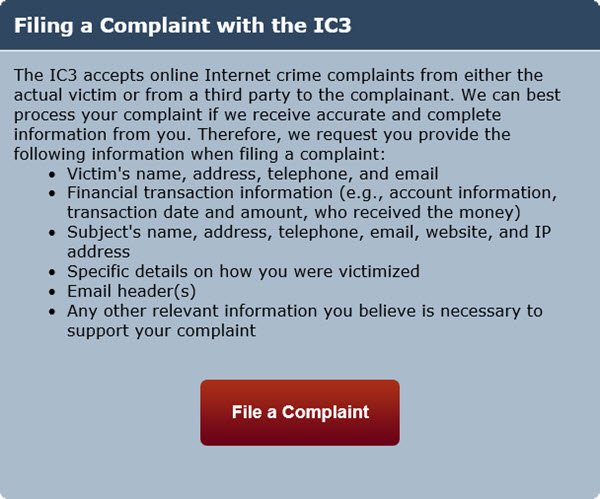Should I report Ransomware? Should I pay the ransom or not? Where do I report ransomware to the FBI, Police or appropriate authorities? If your Windows computer system has been infected with Ransomware, and you have these questions in mind, then this post will be able to help you.
Ransomware is a type of malware that locks your files, data, or the PC itself and extorts money from you in order to provide access. This is a new way for malware writers to ‘collect funds’ for their illegitimate activities on the web.
Ransomware has now become a serious threat to the online world. Many software firms, universities, companies and organizations around the world are trying to take precautionary measures to save themselves from ransomware attacks. Authorities & Security companies too, are gearing up for a fight against them.

Ransomware – Should I pay or not?
It is easy for people to say – No, do not pay ransom. But you know better! If you are able to find a ransomware decryptor tool that unlocks your data, or you are able to manually decrypt your files or restore your data from backups – great! But what if you have valuable files and data locked up, and you have no backup files?
There are statistics that say that over 50% decide to pay, whereas the rest just format their systems and restore backups. But this figure could be much higher, as many who pay up do not want to admit that they did.
The money asked is typically in the range of USD 200-900. But there are reports that Hollywood Presbyterian Medical Center paid $17000 to the hackers to get back their data!
FBI says you have a risk decision to make. Europol says – Don’t pay.
If your data is critical and you have no choice and you have to get access to it back, paying the ransom is the only option you have. This is the hard fact of life!
So you see, you need to take a call on it.
If you do decide to pay up, you have to remember that the cybercriminals may or may not give you a key to decrypt – although they generally do give it since they have a ‘rep to protect’.
Read: What to do after a Ransomware attack?
Should I report Ransomware?
Well, this is one thing I think you should do. Reporting ransomware incidents will help bring such nefarious activities out in the public domain, where security researchers can study their incidence further. Moreover, it can also help authorities crack down on hackers.
How and Where to report Ransomware?
If you have decided to report your ransomware case, it is commendable. Now, you should alert the cyber law enforcement authorities in your city or country. Searching on the web or enquiring at the local police station will definitely help. You can also report Ransomware to the FBI, Police or appropriate authorities.
We have compiled a list of links below where you can report ransomware attacks. Depending on the country you stay in, you have the following options available to report ransomware:
- In Australia, go to the SCAMwatch website
- In Canada, go to the Anti-Fraud Centre
- In France, go to the Agence Nationale de la sécurité website
- In Germany, go to the Bund.de website
- In India lodge a complaint with the cybercrime cell nearest to you.
- In Ireland, go to the An Garda Síochána website
- In New Zealand, go to the Consumer Affairs website
- In the UK, go to the Action Fraud website
- In the USA, go to the On Guard Online website.
Generally speaking, you could contact the cybercrime cell or Police station in your city/area, and report your case to them.
The US Federal Bureau of Investigation is also requesting that ransomware victims contact their local FBI office or file a complaint with their Internet Crime Complaint Center website.
The following ransomware details may be required by them:
- Date of Infection
- Ransomware Variant
- Victim Company Information
- How the Infection Occurred
- Requested Ransom Amount
- Actor’s Bitcoin Wallet Address
- Ransom Amount Paid
- Overall Losses Associated with a Ransomware Infection
- Victim Impact Statement.
You may be asked to submit your name, address, telephone number and email in order for the agency to follow up with you.
If you have anything to add to this post – perhaps a link where victims from your country can report ransomware cases, please do share below in the comments section for the benefit of others.
Protect yourself from Ransomware and stay safe!
The word is incidents, not incidence. I won’t even comment on the other errors. Wow.
You don’t need to worry about this stuff if you think before you get attacked by ransomware. I’ve always waited to the last minute, but right now my sister bought me for my birthday new security software exactly because of the fact I am always at the edge of getting my PC completely destroyed. I didn’t know about this software but I read a little, asked few friends who knew something about computing and they all agreed it’s a new product but it’s getting more and more popular with its simplicity and intelligent analyzes. It’s called Impedio Security if anyone wants to try it. I highly recommend it, as far as I’m concerned, there’s nothing better than this :o